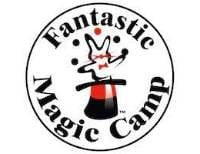Kent Cummins, a camp director, was on the phone with the mother of a prospective camper. She desperately wanted her daughter to attend his summer day camp. Yet, she was finding that in most cases, camps would not admit her daughter.
Up to that point, he had never heard the term Down Syndrome. But the kid was being described as “the sweetest child you will ever meet.” The daughter did in fact attend his camp, and after attending several sessions over several years, the young lady went on to be a camp counselor. Over a short period of time, Cummins’ Fantastic Magic Camp quickly developed a reputation it still has today, as a place where kids of all types and abilities can thrive.
There are many recreation programs, including day camps, in the Austin area that are specifically designed for kids with disabilities. And it’s small wonder why they are popular. Daniel Carroll, of 1World Karate in Austin, points out that “programs specifically for students with special needs are great.”
But Carroll emphasizes that people with disabilities AND people with “typical” needs get huge benefits from participating in the same programs and activities. This approach to programming is known as inclusion, or as Carroll describes, “an open, safe program where EVERYONE can have a great time, and learn about just how wonderfully diverse this one world of ours really is.”
Working at Magic Camp had been one of my first regular jobs after high school, and I continued to work my way into co-ownership upon Cummins’ retirement. As directors, we quickly discovered that making reasonable accommodations, something mandated by the ADA, was nether cost prohibitive or difficult. At first, and on multiple occasions, we found ourselves fretting over accommodations that would make activities accessible to all of the campers. Some kids had mobility needs, some had intellectual disabilities, and some had learning disabilities.
But the vast majority of the time, a small way to tweak a lesson or activity so that all children could participate was found not by us, but by the campers themselves.
This is the camp guide issue, and so whether or not your kids have disabilities, you are likely looking for guidance on finding a good program. I asked several directors for advice on what to look for when choosing a camp.
Unsurprisingly, much of the advice is as valid for families with kids without disabilities as well as for all other families:
- Don’t simply ask if a camp will accommodate your child’s special needs. Look for a camp that will celebrate your child’s special needs. After all, as Director Peter Hinrichs points out, “All children have special needs.”
- Spend less time looking at the facilities and focus on the campers. How are they responding to the activities? Are they smiling and having fun? How are they treating each other? Are they comfortable being different and unique, or are they all trying to fit some type of norm?
Consider asking these questions:
- Has the staff received any training in teaching students with special needs?
- Are you open to advice for working with my child?
- What are your policies regarding treatment of children who do not act in the same way as mainstream kids?
- What types of children have NOT succeeded at your camp?
As a dad myself, I have experienced how difficult it can be to schedule camps throughout the summer that will hold my child’s interest and be able to handle his idiosyncrasies. If you have a child with disabilities, that stress is undoubtedly multiplied.
But there’s good news. Not only are there quite a few programs out there specifically catering to kids with special needs, but most programs that are intended for the general population can easily accommodate and include your child if you ask the right questions. In fact, allowing your child to attend those camps might be one of the more important things you can do, not only for your child’s development, but for all children.
Aaron Fasel is the host and editor of a pun podcast at punintensive.com. He’s also a children’s book writer, birthday party magician and balloon twister. His website is aaronpf.com.
















